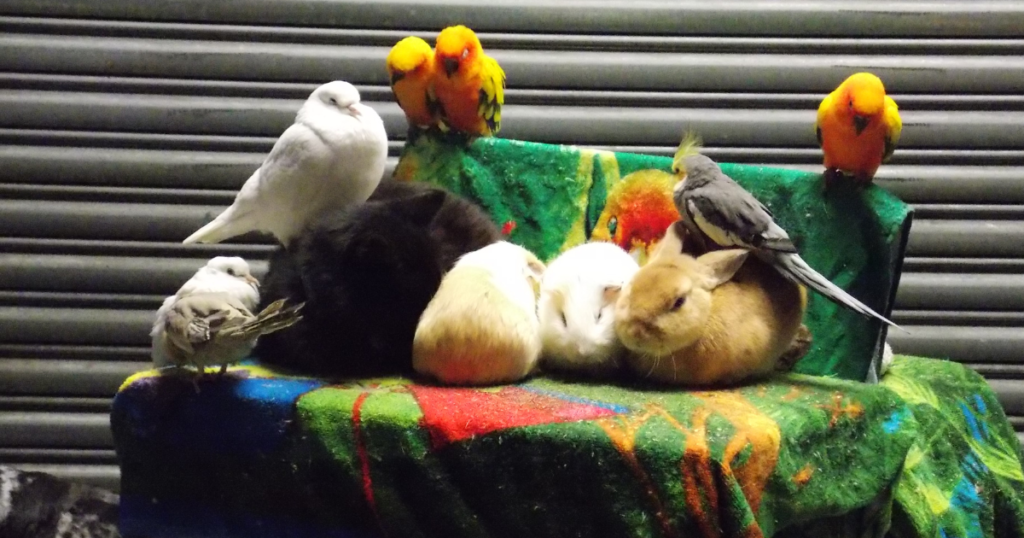In this blog post, we provide 10 essential tips for pet’s nutrition, including choosing the right food, establishing a feeding schedule, offering healthy treats in moderation, ensuring proper hydration, and addressing common nutritional problems. By following these tips, you can provide your pet bird with a balanced diet and improve their overall health and wellbeing through proper pet nutrition.
As a pet bird owner, providing proper pet’s nutrition is essential to ensure the health and wellbeing of your feathered friend. In this blog post, we’ll provide 10 essential tips for pet bird nutrition that will help you provide a balanced and healthy diet for your bird.
Table of Contents
Choose the Right Food for Pet’s Nutrition
The foundation of a healthy diet for your pet bird is choosing the right food. There are many options available, including seed-based diets and pellet-based diets. It’s important to select a food that meets the specific nutritional needs of your bird’s species. For example, some birds require a higher fat or protein content than others. You can consult with your avian veterinarian or do research to determine the best food for your bird.
Establish a Feeding Schedule for Pet’s Nutrition
Establishing a consistent feeding schedule for your bird is important for maintaining their health and wellbeing. Determine the appropriate amount of food for your bird’s size and species, and divide that amount into two or three feedings per day. Avoid overfeeding your bird, as this can lead to obesity and other health problems.
Offer Healthy Treats to pet’s in Moderation
Just like humans, birds enjoy treats, but it’s important to offer them in moderation. Healthy treats include fresh fruits and vegetables, and occasional whole grain bread or cooked pasta. Avoid offering sugary or fatty treats, as these can lead to health problems.
Ensure Proper Hydration
Fresh, clean water should be available to your bird at all times. Change the water at least once per day to prevent bacteria growth. Some birds prefer to drink from a water bottle instead of a dish, so consider offering both options to determine what your bird prefers.
Use Nutrient Supplements Appropriately
In some cases, your bird may require nutrient supplements to maintain their health. Your avian veterinarian can recommend appropriate supplements based on your bird’s individual needs. However, it’s important to use supplements as directed, as over-supplementing can lead to health problems.
Avoid Toxic Foods
Certain foods can be toxic to birds and should be avoided, such as chocolate, caffeine, alcohol, and avocado. Before offering any new food to your bird, research whether it is safe for them to eat.
Monitor Your Bird’s Weight
Monitoring your bird’s weight is an important part of maintaining their health. Regularly weigh your bird and keep track of any changes. Sudden weight loss or gain can indicate health problems that should be addressed.
Consider Your Bird’s Age
The nutritional needs of your bird may change as they age. Young birds require more protein and calcium to support growth and development, while older birds may require less fat and fewer calories. Consult with your avian veterinarian to determine the appropriate diet for your bird’s age.
Address Nutritional Deficiencies
Nutritional deficiencies can lead to health problems in birds, such as weakened immune systems or developmental issues. Common deficiencies include vitamin A, calcium, and iron. Your avian veterinarian can recommend appropriate supplements or dietary changes to address deficiencies.

Seek Veterinary Care for Health Issues
If you notice any changes in your bird’s appetite, weight, or behavior, it’s important to seek veterinary care as soon as possible. Your avian veterinarian can diagnose and treat any health issues related to nutrition or other factors.
By following these 10 essential tips for pet bird nutrition, you can provide your bird with a balanced and healthy diet that supports their overall health and wellbeing. With proper nutrition, your feathered friend can thrive and bring joy to your life for many years to come.
FAQs about Pet Bird Nutrition
What is the foundation of a healthy diet for my pet bird?
The foundation of a healthy diet for your pet bird is choosing the right food. Select a food that meets the specific nutritional needs of your bird’s species. For example, some birds require a higher fat or protein content than others. Consult with your avian veterinarian or do research to determine the best food for your bird.
How often should I feed my pet bird?
Establish a consistent feeding schedule for your bird by dividing their daily food intake into two or three feedings per day. Avoid overfeeding your bird, as this can lead to obesity and other health problems.
What are some healthy treats I can offer my pet bird?
Healthy treats include fresh fruits and vegetables, and occasional whole grain bread or cooked pasta. Avoid offering sugary or fatty treats, as these can lead to health problems.
What should I do if I suspect my pet bird has a nutritional deficiency?
If you suspect your bird has a nutritional deficiency, consult with your avian veterinarian. Common deficiencies include vitamin A, calcium, and iron. Your avian veterinarian can recommend appropriate supplements or dietary changes to address deficiencies.
What foods are toxic to pet birds?
Certain foods can be toxic to birds and should be avoided, such as chocolate, caffeine, alcohol, and avocado. Before offering any new food to your bird, research whether it is safe for them to eat.

